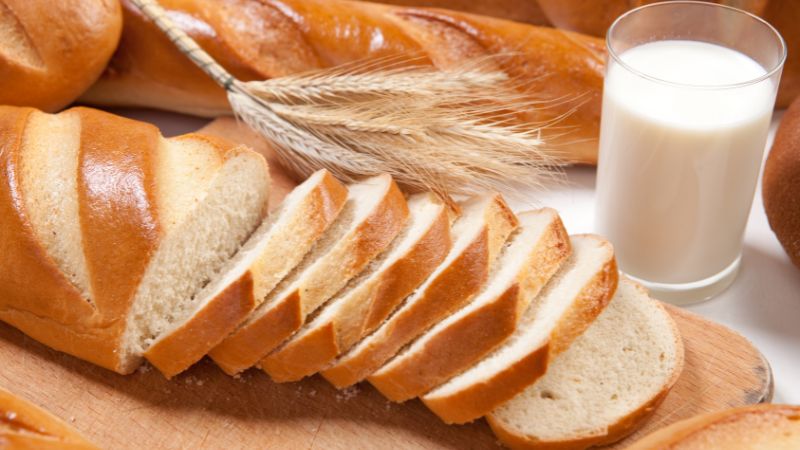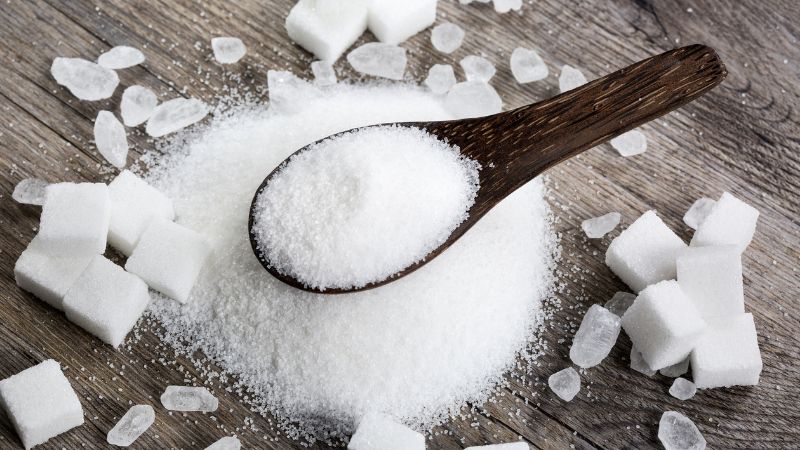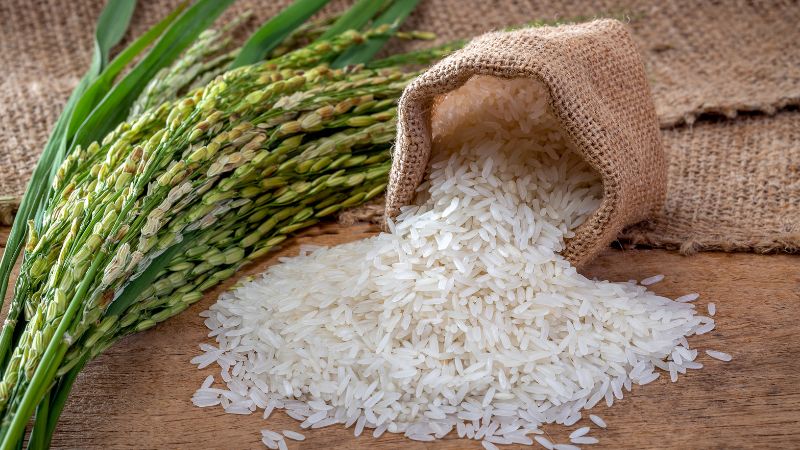When it comes to weight loss, food choices matter. One group of foods to be mindful of is “white foods,” which include processed and refined white foods such as white flour, pasta, bread, crackers, and simple sugars like table sugar and high-fructose corn syrup.
1 White Bread
White bread is a common food but can pose health risks. Products made with white flour, such as crackers, cookies, breakfast cereals, and white bread, should be limited in your diet, especially if you’re trying to lose weight.
The main reason lies in the composition of white bread. During processing, most of the fiber, vitamins, and essential minerals found in the bran and germ of wheat are removed, leaving only the refined flour. This makes white bread less nutritious and higher in simple sugars, which can easily be converted into fat.
Moreover, gluten, a protein found in wheat flour, is also a health concern. Gluten can cause digestive issues such as bloating and difficulty digesting, and even intestinal damage in sensitive individuals. It also stimulates the production of the hormone ghrelin, which increases appetite and leads to overeating and weight gain.
 White Bread
White Bread
2 White Sugar
Sugar is a familiar ingredient in our lives, but it can pose health risks, especially refined white sugar. This type of sugar should be minimized in the diet because of the following harms:
-
Obesity and Cardiovascular Diseases: White sugar is high in calories but low in nutrients. When excess sugar calories are consumed, the body converts them into fat, leading to weight gain and obesity. Obesity is a leading cause of dangerous cardiovascular diseases such as high blood pressure, atherosclerosis, and stroke.
-
Metabolic Disorders: White sugar negatively affects metabolism, making it difficult for the body to burn calories efficiently, leading to fat accumulation and an increased risk of diabetes.
-
Immune System Damage: White sugar weakens the immune system, making the body more susceptible to illnesses.
-
Tooth Decay: Consuming large amounts of white sugar increases the desire for sweet foods, creating an acidic environment in the mouth, leading to tooth decay and other dental issues.
-
Cancer Risk: Some scientific studies suggest that white sugar may contribute to an increased risk of certain cancers.
 White Sugar
White Sugar
Instead of completely avoiding sweets, you can choose healthier alternatives to white sugar.
Natural sugars found in pure foods such as honey, stevia, and maple syrup are great options for those who enjoy a subtle sweetness while maintaining their health. Compared to white sugar, these natural sweeteners contain fewer calories and provide vitamins, minerals, and fiber that benefit the body.
3 White Rice
White rice is a staple food in the diet of many Vietnamese people, but it also poses some health risks, especially when trying to lose weight.
The main reason lies in the processing of white rice. When milled to create smooth white rice, most of the bran and germ, which are rich in fiber, vitamins, and essential minerals, are removed. This makes white rice nutritionally deficient and high in simple carbohydrates, which can easily be converted into fat.
Additionally, white rice has a high glycemic index (GI), meaning it causes a rapid increase in blood sugar levels after consumption. This leads to increased appetite and overeating, and it makes it difficult for the body to burn calories efficiently, resulting in weight gain.
Instead of white rice, prioritize choosing whole grain alternatives such as brown rice, oatmeal, and quinoa. These whole grains retain the bran and germ, providing a rich source of fiber, vitamins, and essential minerals for the body.
 White Rice
White Rice
Source: Sức khỏe và Đời sống Newspaper


































